Dear Readers…
Day 3 of Revision Week brings us memoirs and ghostwriting with Joni Rodgers, who is known for her beautifully crafted, impeccably researched memoirs. Joni is also a bestselling, critically-praised novelist in her own right.
Please join Joni and The Editor for Day 3 of Revision Week, and find out how to win today’s “Free Partial Edit” from The Editor.
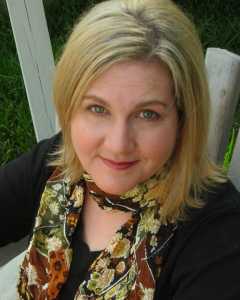 Joni Rodgers is the bestselling author of the memoir Bald in the Land of Big Hair, and five novels, including Crazy for Trying and Sugar Land. She has also ghostwritten, collaborated on, and doctored multiple New York Times bestsellers (nonfiction, novels, and memoirs) and numerous op eds, magazine articles, book proposals, speeches, and screenplays. She has collaborated with notable figures in entertainment, politics, and sports and with ordinary people living extraordinary lives, including actresses Swoosie Kurtz, Kristin Chenowith, and Rue McClanahan, and U.S. Ambassador to Hungary and Susan G. Komen founder/CEO Nancy Brinker.
Joni Rodgers is the bestselling author of the memoir Bald in the Land of Big Hair, and five novels, including Crazy for Trying and Sugar Land. She has also ghostwritten, collaborated on, and doctored multiple New York Times bestsellers (nonfiction, novels, and memoirs) and numerous op eds, magazine articles, book proposals, speeches, and screenplays. She has collaborated with notable figures in entertainment, politics, and sports and with ordinary people living extraordinary lives, including actresses Swoosie Kurtz, Kristin Chenowith, and Rue McClanahan, and U.S. Ambassador to Hungary and Susan G. Komen founder/CEO Nancy Brinker.
*Joni’s interview follows the Rafflecopter form for today’s Free Partial Edit Giveaway. Scroll down for her full interview.
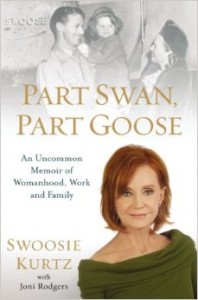 How many drafts does it typically take before you feel confident about the voice and story choices you’ve made?
How many drafts does it typically take before you feel confident about the voice and story choices you’ve made?
I’m not sure there is such a thing as “typical”; every book has its own journey, and it takes as many drafts as it takes to get it right. In any worthwhile archeological dig, you’re going to shovel through a lot of sand. As a ghostwriter, my job is easier when I have a client like Swoosie Kurtz [whose memoir comes out in April]. She’s extremely smart, naturally funny, and very hands-on throughout the process. She has a strong point of view and unique voice, and throughout the interview process, she was forthcoming and full of great ideas. The story choices were mostly hers, but they really resonated for me, and I ran with them. Her generosity with her time during the first eight or ten weeks made a dramatic difference in the amount of revision needed later on because I was able to sit with her and learn her voice—and the voice of her 98-year-old mom, Margo, who speaks with a beautifully poetic sort of dementia. The resulting book, Part Swan, Part Goose, is the most extraordinary artistic collaboration I’ve ever been part of. I’m thrilled to see it getting critical accolades.
How does revision work in ghostwriting? How do you strike a balance between your judgment as a writer and the preferences of the person you’re writing for?
It depends on the client. I adjust the process to be what they need: a co-pilot, a chauffeur, or something in between. If something I write doesn’t sit well with my client, then it’s not right. I might explain why I made a certain choice when I was writing, but I never ask them to go against their gut, even when it means scrapping a piece of writing I’m proud of. It’s the ultimate test of “Seek first to understand, then to be understood.” I listen, ask questions, and revamp until we find what feels right.
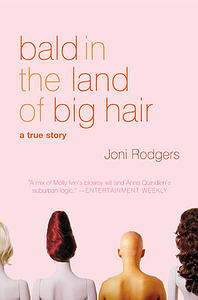 Were there different challenges in writing your own story for your memoir Bald in the Land of Big Hair, as opposed to crafting someone else’s memoirs as a ghostwriter?
Were there different challenges in writing your own story for your memoir Bald in the Land of Big Hair, as opposed to crafting someone else’s memoirs as a ghostwriter?
Oh, of course! Writing a memoir can be (and should be, at its best) a deeply emotional journey. Many of my clients tell me it’s like therapy. Every ghostwriter has his or her own unique skillset, and part of mine is that I have experienced that emotional journey and learned firsthand how much work it is and also how healing and liberating it can be. The end goal is always a great book, but I also have the hippie mama goal that I want the writing of the book to be a soul-feeding experience for my client.
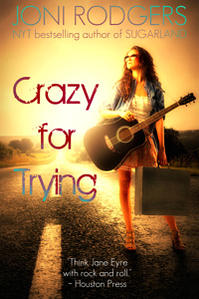 Do you use critique partners for either your novels or your ghostwriting projects?
Do you use critique partners for either your novels or your ghostwriting projects?
Absolutely. For the past eight years or so, I’ve been richly blessed to be part of an amazing critique group called the Midwives—all well-published professional authors, women of a certain age, voracious readers, and jolly good pals. One of our founding members, Colleen Thompson, is a bestselling RITA-nominated romantic suspense author who’s blogged and given workshops on the dynamics of a great critique group. Anyone who has a chance to take an online class from her should jump on it. Finding the Midwives was one the greatest gifts in my life, personally and professionally.
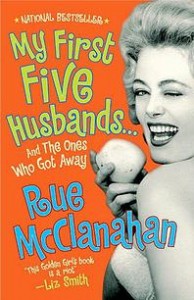 Which draft typically gets shown to your editor? How much revising happens after the editor sees that draft?
Which draft typically gets shown to your editor? How much revising happens after the editor sees that draft?
It varies, but in general, I try to minimize the revisions by doing three things during the writing process: First, as early as possible, I get the editor’s feedback on the chapter outline and opening chapters so we’re all in agreement about the structure, content and voice of the book. Second, I’ve learned from experience to anticipate issues that raise red flags in the legal review, and I try to bulletproof the manuscript in advance. Third, I run the finished draft past a consulting editor or critique partner before I hand off to the publisher. No matter how good you are, there’s a point where you can’t see it anymore. I’m not completely joking when I say, “Good freelance editors are so hard to find, I had to grow one of my own.” I’m so lucky to have my daughter, Jerusha Rodgers (Rabid Badger Editing), on my speed dial. It’s worth the money, because it saves a lot of time and makes me look good in front of people I hope to work with again. Clients, agents, and editors are consistently wowed. Her eagle eye has also been incredibly valuable to me in the fiction arena since I decided to go indie with my own books.
Can you share an experience of having a writing problem you didn’t think you could solve but eventually did?
Writing presents challenges; publishing presents problems. It feels like an important distinction to me, because challenges make work a joy, while problems are just a (hopefully educational) pain in the ass. I wrote a novel about seven years ago, and because the publisher of my previous novel had an option on it, I was persuaded to make some pretty big changes—including changing a main character from a lesbian to a man. But the story never felt right to me, even after several drafts with extensive input from my editor and agent. Even though the plot remained the pretty much the same, the nuances and thematic payoff just didn’t ring true to my intention in telling the story. So I set the book aside, thinking it was dead. As years went by, however, my confidence grew, and I knew I had to trust my gut. I went back for another extensive rewrite, restoring my original character, who totally deserves to be in the driver’s seat of her story and definitely grew with the benefit of seven additional years of craft skill. I’ll be releasing the novel as an indie later this year, and if it goes down in flames, so be it. I’m willing to go down in flames for something I believe in. What I’m no longer willing to do is compromise on creative control of my fiction, so the indie publishing revolution has been great for me. I’m able to remain a player in the corporate publishing world as a ghostwriter while spreading my artistic wings as an indie novelist.
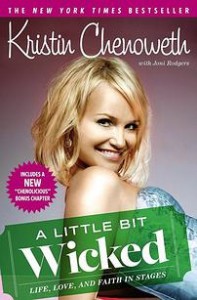 How do you know you’ve got the final draft?
How do you know you’ve got the final draft?
If I ever feel I’ve gotten there, I’ll let you know!
Thank so much, Joni, for sharing insights that extend beyond fiction-writing. Collaborations present unique challenges, and it’s fascinating to get a peek at how you wend your way through them to a successful final book.